
Cephalocereus is a genus of slow-growing, columnar-shaped, blue-green cacti. The genus is native to Mexico.

Lophocereus schottii, the senita cactus, is a species of cactus from southern Arizona and north-western Mexico, particularly Baja California and Sonora.
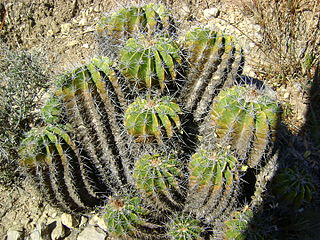
Ferocactus flavovirens is a species of Ferocactus from Mexico.

Ferocactus pottsii is a species of Ferocactus from Mexico. The specific epithet has also been spelt pottsi.

Stenocereus stellatus is a flowering plant in the family Cactaceae that is found in Oaxaca, Mexico

Armatocereus matucanensis is a species of Armatocereus from Ecuador and Peru.
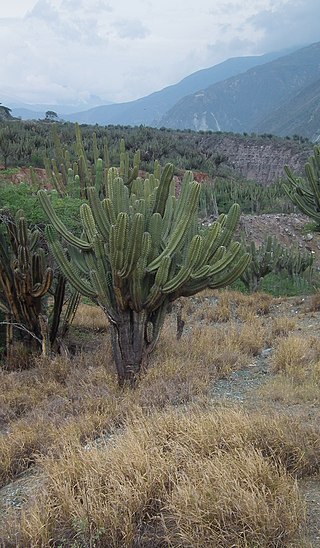
Cereus fricii is a species of Cereus from Venezuela.

Cereus phatnospermus, synonym Cereus kroenleinii, is a species of columnar cactus found in Brazil, Bolivia, and Paraguay.
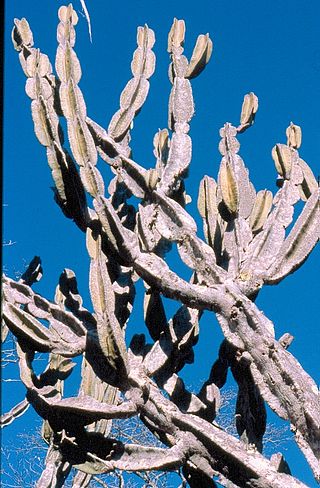
Cereus pierre-braunianus is a species of columnar cactus found in NE Goiás in Brazil.

Polaskia chichipe is a succulent cactus native to a small area of mountains of northern Oaxaca and southern Puebla, Mexico. It grows in xerophytic shrubland between 1,600 and 2,300 meters above sea level.

Xiquexique gounellei is a species of plant in the genus Xiquexique of the cactus family. Common names include "Alastrado", "Chique-Chique", "Xique-Xique" and "Xique-Xique das Pedras".

Pachycereus weberi is a columnar cactus plant native to Mexico.
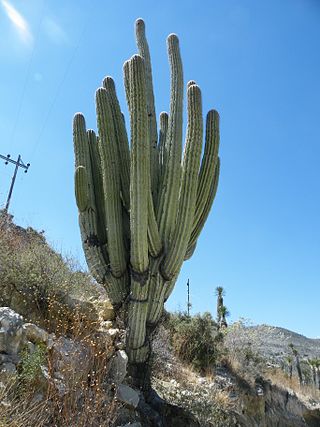
Cephalocereus fulviceps is a species of Cephalocereus from Mexico.

Cephalocereus macrocephalus, synonym Neobuxbaumia macrocephala, is a species of cactus endemic to Mexico.
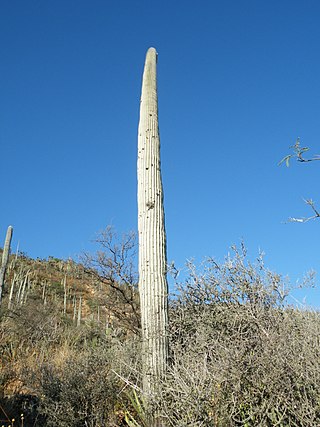
Cephalocereus columna-trajani is a species of cactus from Mexico.

Cephalocereus euphorbioides is a species of Cephalocereus from Mexico.

Cephalocereus mezcalaensis is a species of Cephalocereus from Mexico.

Cephalocereus tetetzo is a species of cactus from Mexico.

Cephalocereus scoparius is a species of Cephalocereus from Mexico.

Cephalocereus polylophus is a species of cactus endemic to Mexico. Often grown under the synonym Neobuxbaumia polylopha, it is popular with cactus growers and reproduces well in cultivation.




















